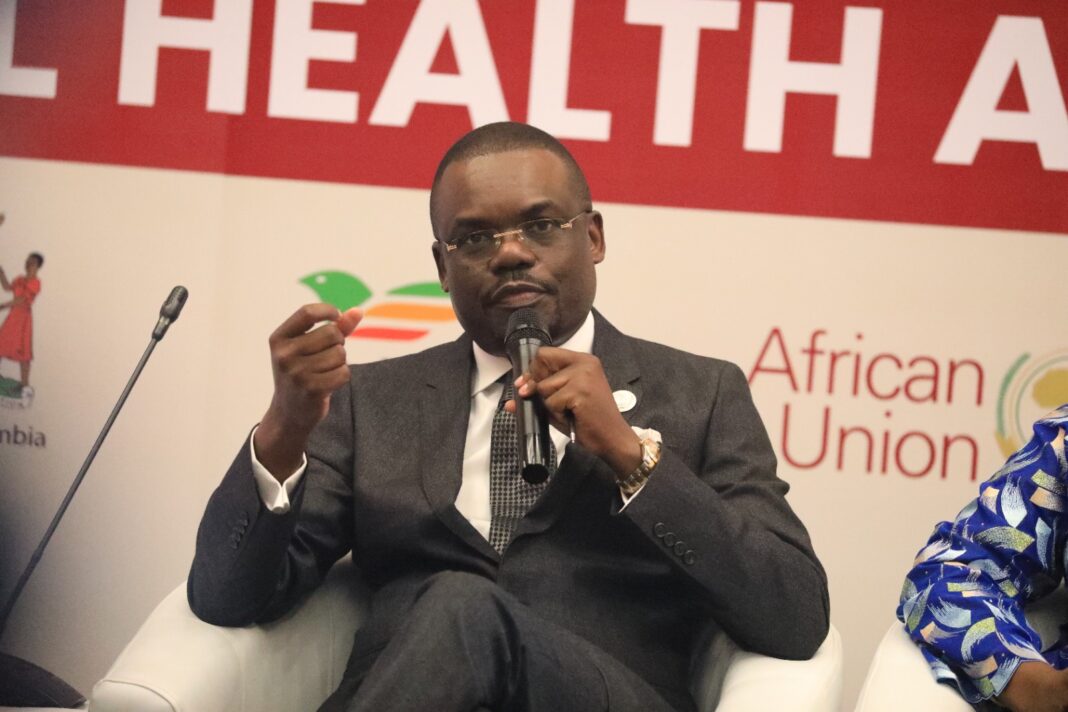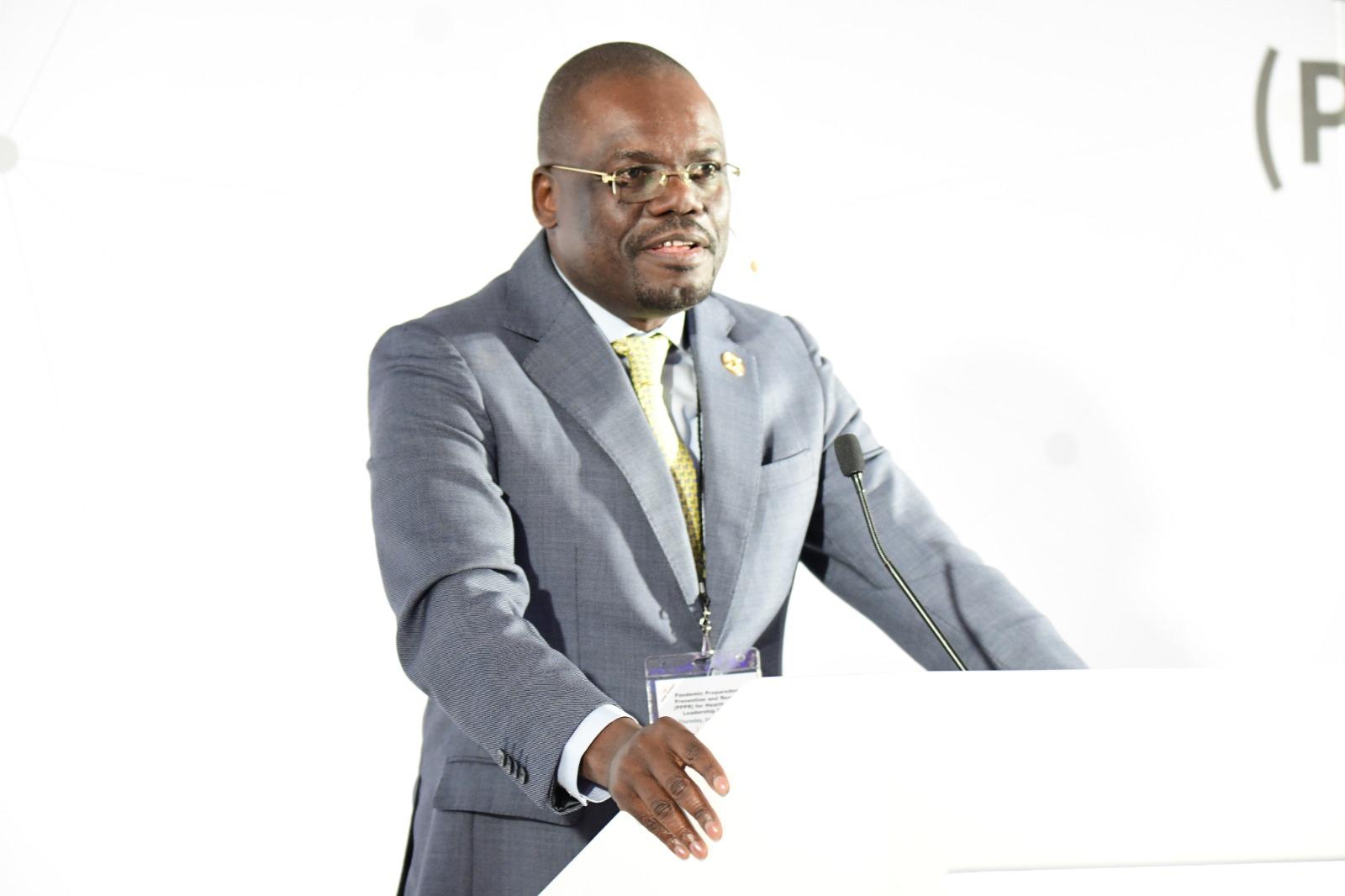Ntsoaki Motaung
The African continent contends with an average of two new outbreaks per week, amounting to nearly 100 outbreaks annually.
This was disclosed by Dr. Jean Kaseya, the Director General of Africa CDC, this week highlighting the alarming correlation between disease outbreaks in Africa and the pervasive impact of climate change.
Astonishingly, Kaseya stated that 75 percent of these outbreaks are exacerbated by the repercussions of climate change.
Stressing the urgency of sustainable solutions, he called for collaborative endeavors to combat the adverse effects of climate change on public health.
He made the remarks during the inauguration of the 3rd International Conference on Public Health Africa, themed ‘Breaking Barriers: Repositioning Africa in the Global Health Architecture’ at the Mulungushi International Conference Centre, in Lusaka, Zambia.
Pointing to the grim reality, Kaseya noted that 18 African countries currently grapple with cholera outbreaks, directly linked to the ramifications of climate change, resulting in a tragic toll of over 4,000 deaths.
He highlighted specific instances, including flooding in multiple countries, outbreaks in Morocco, and various natural disasters, underscoring the evident correlation between climate change and its impact on public health.
Citing statistics from the African Development Bank, Kaseya expressed concern over the substantial economic toll, revealing that the continent suffers a Gross Domestic Product (GDP) loss ranging from five to 15 percent due to climate change effects.
He reaffirmed Africa CDC’s commitment to aiding African nations in adopting a comprehensive “one-health” approach to confront the challenges posed by climate change.
In a plea directed towards global leaders, especially those convening at COP28, he urged them to take accountability for their contributions to climate change, stressing the immediate need for decisive action.
“We need to act now and act swiftly. These challenges resonate deeply and personally with us all. As a father of three daughters, I aspire to witness the creation of a better, healthier future—a goal I believe we can achieve,” he said.
Amidst the challenges, Kaseya acknowledged the remarkable efforts underway in Africa, expressing inspiration at the progress achieved.
“We are actively ‘Breaking Barriers’, collectively repositioning Africa in the global health landscape,” he affirmed.
Zambian Minister of Health, Sylvia Masego, revealed that Health Ministers from across Africa and around the world had received invitations to attend the 2023 United Nations Climate Conference (COP28) from November 30 to December 12, 2023.
Their primary objective, according to Masego, would be to shed light on the profound impact of climate change on healthcare.
He stressed the collective effort of African Health Ministers to advocate with a unified voice, aiming to draw global attention to the severe consequences of climate change on health.
“This conference marks a pivotal moment where the link between the environment and health will be highlighted. As Health Ministers, we are tasked with ensuring this issue receives the attention it deserves,” she stated.
Simultaneously, the World Health Organization (WHO) is mobilising the global health community to highlight the critical intersection of climate change and health in the upcoming negotiations.
WHO stresses the imperative need to broaden global discussions to encompass human health, urging negotiators to acknowledge their responsibility for safeguarding the well-being of populations.
Dr. Tedros Adhanom Ghebreyesus, WHO Director-General, underscored the non-negotiable importance of prioritising health as the cornerstone of resilient societies.
“Leaders convening in Dubai must deliver strong health outcomes that align with the urgent needs of their people and economies. It is crucial to shift the discourse and showcase the substantial benefits of bold climate action on our health and overall well-being,” Tedros remarked.
The rising frequency and severity of extreme weather events, including droughts, floods, and heat waves, pose significant strain on healthcare infrastructure.
Notably, last year’s floods in Pakistan displaced 8 million individuals and affected 33 million. Forecasts from the World Bank predict that without immediate and decisive action, climate change could displace an estimated 216 million people by 2050.
WHO’s urgent appeal for climate and health action at COP28 aims to compel negotiators to recognize that climate action directly translates to health action. Failing to address this reality will have profound consequences for current and future generations’ well-being.
This call to action from WHO unites the health community in urging a commitment to bolstering resilient health systems, curbing emissions, and placing health at the forefront of climate change discussions.
Additionally, the inaugural Health Day is set to elevate the global profile of the interconnection between climate and health, fostering the integration of health concerns within the climate change agenda.
Summary
- As a father of three daughters, I aspire to witness the creation of a better, healthier future—a goal I believe we can achieve,” he said.
- He stressed the collective effort of African Health Ministers to advocate with a unified voice, aiming to draw global attention to the severe consequences of climate change on health.
- Simultaneously, the World Health Organization (WHO) is mobilising the global health community to highlight the critical intersection of climate change and health in the upcoming negotiations.

Your Trusted Source for News and Insights in Lesotho!
At Newsday Media, we are passionate about delivering accurate, timely, and engaging news and multimedia content to our diverse audience. Founded with the vision of revolutionizing the media landscape in Lesotho, we have grown into a leading hybrid media company that blends traditional journalism with innovative digital platforms.










